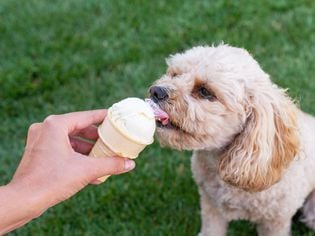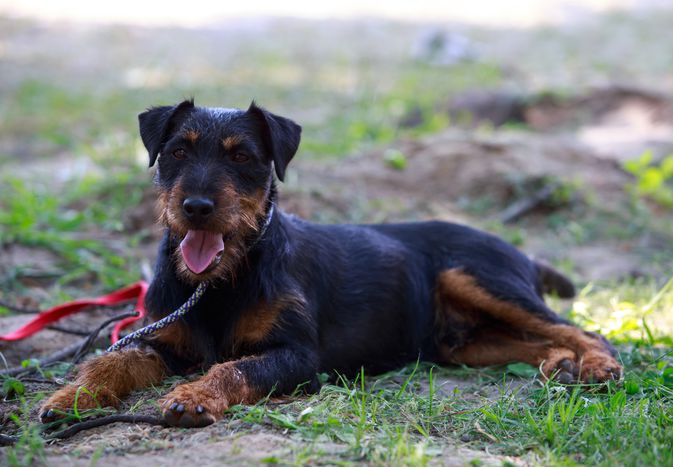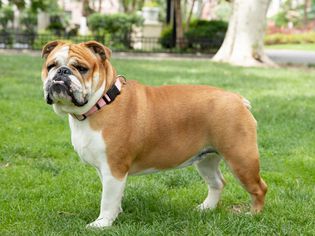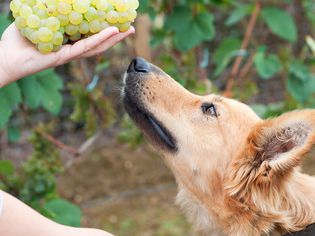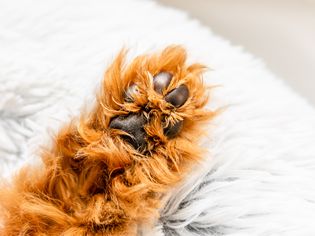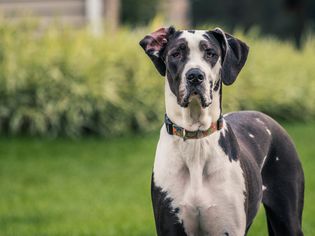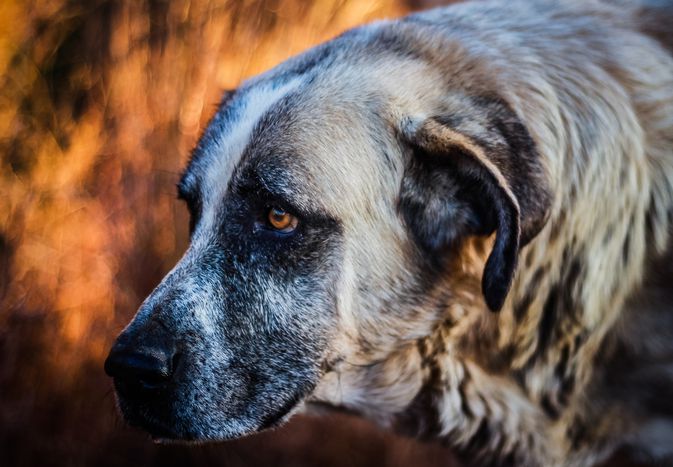The Appenzeller Sennenhund is a medium-size herding dog breed from Switzerland with a short but dense tricolor double coat. The dog has a square, well-balanced, and muscular build. Their head is somewhat wedge-shaped with almond-shaped eyes and triangular, downward-hanging ears. The breed is quite versatile, having been used for various jobs around farms and serving as a beloved family companion.
Learn about the Appenzeller Sennenhund, from their history to their care needs.
Breed Overview
Group: Herding
Height: 19 to 22 inches
Weight: 48 to 70 pounds
Coat: Short, smooth double coat
Coat Color: Black, brown, and white
Life Span: 12 to 15 years
Temperament: Bright, loyal, lively
Hypoallergenic: No
Origin: Switzerland
Characteristics of the Appenzeller Sennenhund
The Appenzeller Sennenhund generally has a lively and alert temperament. This dog typically bonds closely with their family, though they can be somewhat wary of strangers.
High energy and intelligence also help to shape the breed’s personality. These are dogs that like to work, so they aren’t best if you’re looking for a less active breed.
| Affection Level | Medium |
| Friendliness | Medium |
| Kid-Friendly | Medium |
| Pet-Friendly | Medium |
| Exercise Needs | High |
| Playfulness | Medium |
| Energy Level | High |
| Trainability | Medium |
| Intelligence | High |
| Tendency to Bark | High |
| Amount of Shedding | Medium |
History of the Appenzeller Sennenhund
The exact origin of the Appenzeller Sennenhund is unknown. But it’s closely related to other Swiss breeds, including the Greater Swiss mountain dog, Bernese mountain dog, and Entlebucher mountain dog.
In the mid-1800s, dogs resembling the Appenzeller Sennenhund were used in Switzerland to guard properties, herd livestock, pull carts, and more. In fact, a loose translation for Sennenhund is “dairy farmer’s dog.” The breed is known to be fearless in nipping at the heels of cows that stray out of line.
The first official breed standard for the Appenzeller Sennenhund came about in 1914. But this dog's numbers are still small around the world. It’s part of the American Kennel Club (AKC)'s Foundation Stock Service, which helps to monitor breeding.
Appenzeller Sennenhund Care
The Appenzeller Sennenhund prefers an active lifestyle with lots of daily exercise. They also need regular grooming. Begin training and socialization at an early age.
Exercise
Plan to spend at least a couple hours per day exercising this active breed. Appenzeller Sennenhunds likes keeping their mind engaged and having a job to do. Ideal activities include:
- Long walks
- Hikes
- Running
- Cycling
- Swimming
Dog sports, such as agility and herding trials, also can provide mental stimulation on top of physical exercise. Puzzle toys can offer mental challenges, as well.
This dog should live in a home with a secure yard where they can run freely. They are not ideal for apartment living or for spending long periods kenneled every day.
Grooming
Brush your dog at least once a week to remove loose fur and prevent tangles and mats. Expect periods of higher shedding, often seasonally in the spring and fall, during which you’ll likely have to brush more frequently.
Bathe your dog roughly once a month, depending on how dirty they get. But be sure to check their ears at least weekly to see whether they need cleaning. Trim their nails every month on average, and brush their teeth with a dog toothpaste every day.
Training
Start training and socialization ideally when your dog is a puppy to prevent bad habits from forming. This intelligent dog can pick up on commands quickly, but also can have a stubborn streak.
Plus, they don't respond well to harsh corrections. So always use positive-reinforcement training methods, such as treats and praise, and keep training sessions fun and varied to hold your dog’s attention.
Moreover, expose your dog to different people, other dogs, and various locations to boost comfort and confidence around strangers. This can help to quell protective instincts.
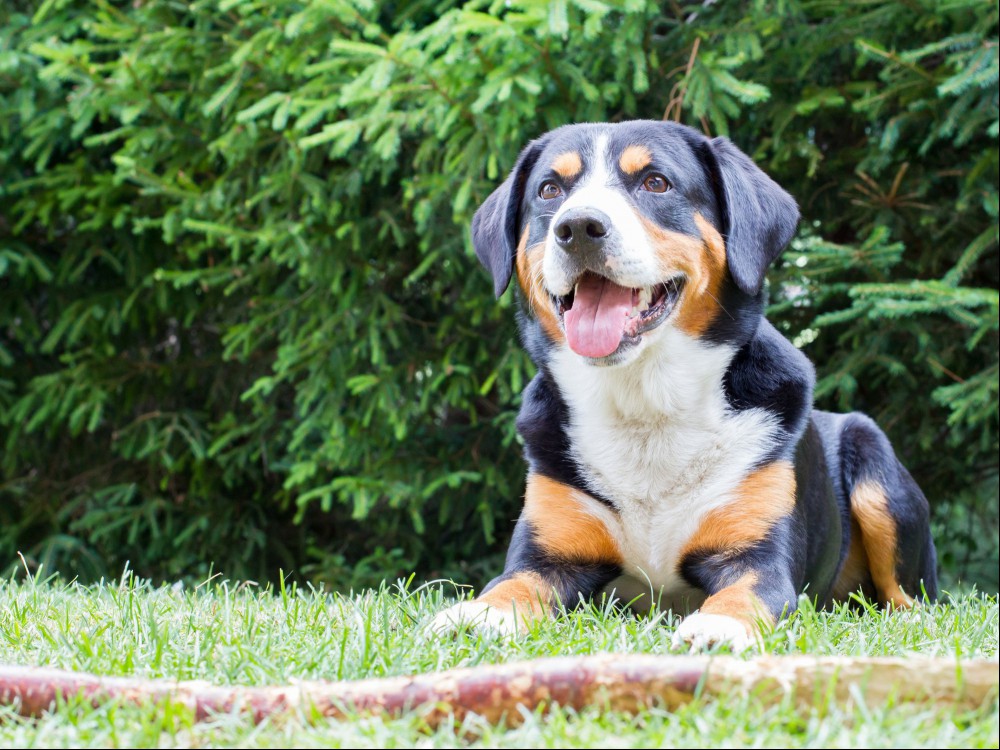
Michaklootwijk/iStock / Getty Images
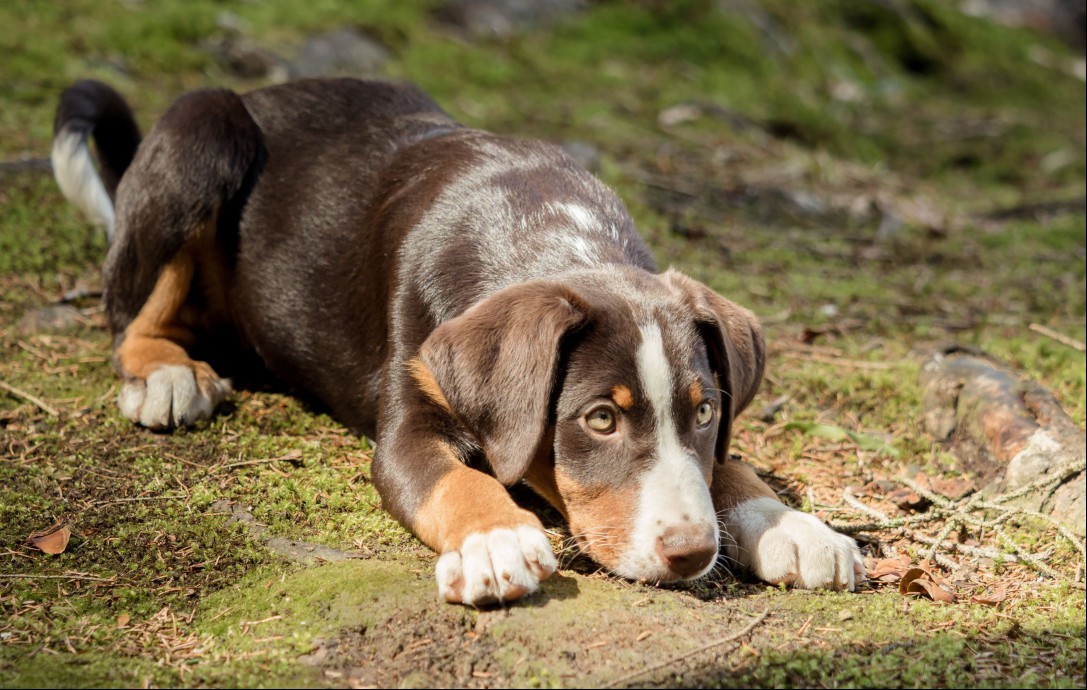
Sandra Dombrovsky / Getty Images
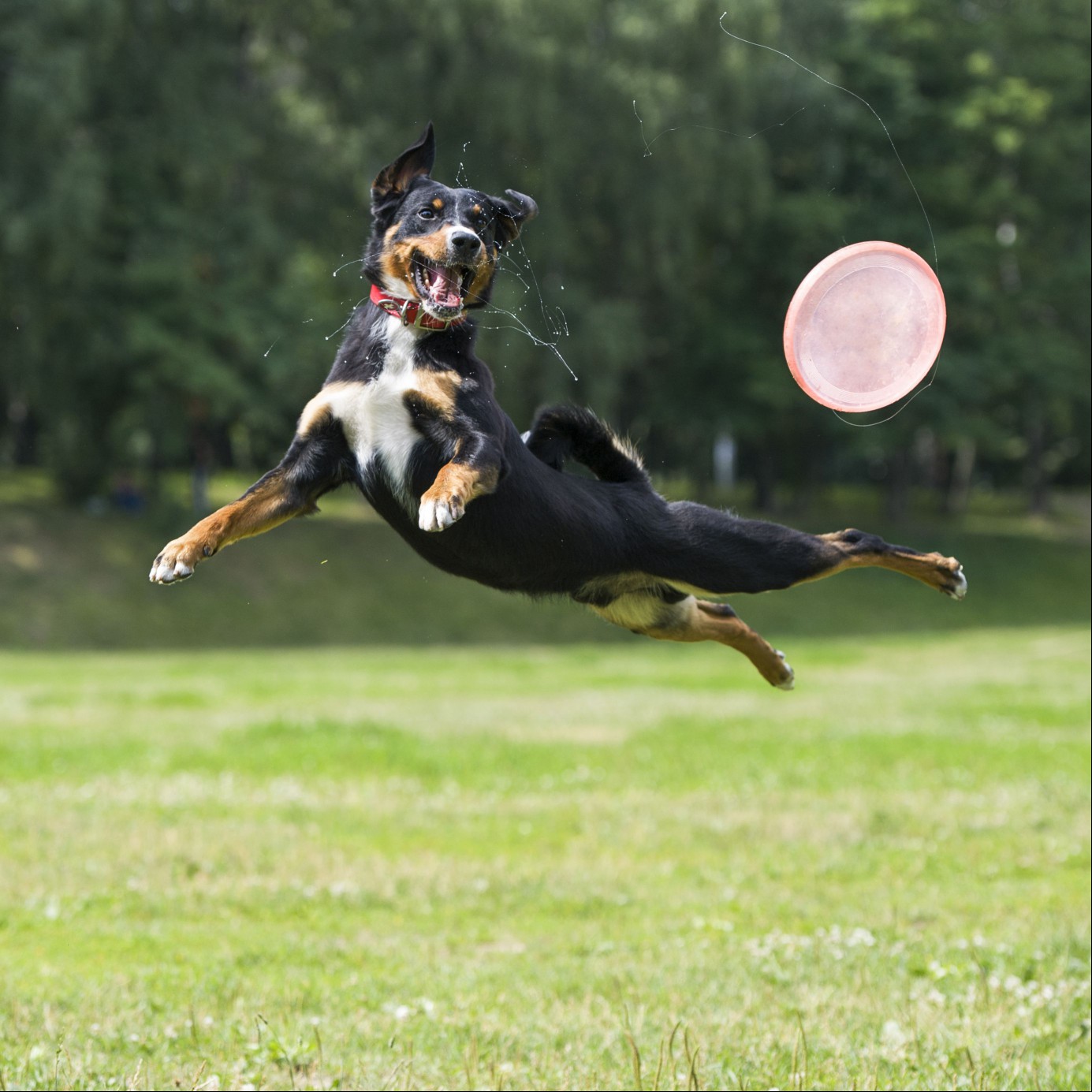
Vikarus / Getty Images
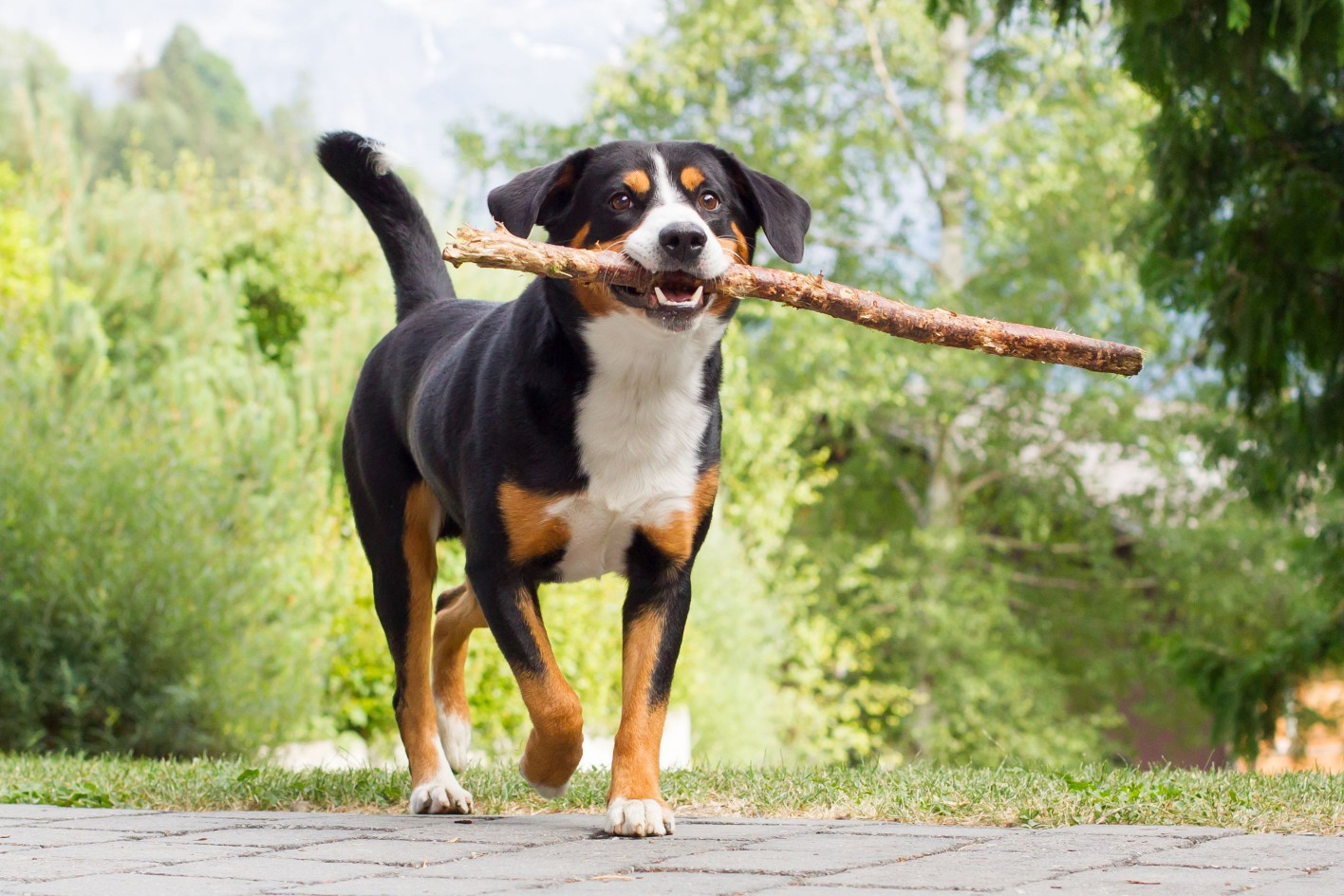
Michaklootwijk/iStock / Getty Images
Common Health Problems
The Appenzeller Sennenhund is generally a healthy and long-lived dog breed that has no known hereditary health issues. However, these dogs may be affected by common canine issues that come with aging. Some conditions that can affect them include:
- Arthritis: Also known as osteoarthritis, this is a progressive condition that causes degeneration of the joints. Symptoms include pain, stiffness, and lameness.
- Hip dysplasia: This orthopedic problem affects the hip joint, inhibiting stability and function. Symptoms include limping, unusual gait, and pain.
- Elbow dysplasia: This orthopedic disorder affects the elbows in the forelimbs. Symptoms include lameness, pain, and swollen elbows.
- Bloat: This is also known as gastric dilatation-volvulus (GDV), and it’s an emergency that requires veterinary attention because it can be fatal. It happens when the stomach expands and rotates because of food, fluid, or gas.
Diet and Nutrition
Always make sure your Appenzeller Sennenhund has access to fresh water, and feed them a high-quality canine diet to ensure they get the proper nutrition.
Be sure to discuss the correct amount and the type of food with your vet. Some dogs need specialized diets based on factors such as age and activity level.
Where to Adopt or Buy an Appenzeller Sennenhund
The Appenzeller Sennenhund can be difficult to find at both rescue organizations and responsible breeders. But it’s still worth contacting your area rescues and getting your name on a breed wait list if possible.
For an Appenzeller Sennenhund puppy from a reputable breeder, expect to pay around $1,800 to $2,200 on average.
For more information to help connect you with an Appenzeller Sennenhund, check out:
- Appenzell Mountain Dog Club of America
- American Kennel Club Breeder Listing
- Save a Rescue
Appenzeller Sennenhund Overview
The Appenzeller Sennenhund can be a great companion for active families who have a home with a secure yard. This energetic and intelligent breed needs a lot of exercise and play, and doesn’t mind having a job to do.
Pros of Appenzeller Sennenhunds
- Highly intelligent and a quick learner
- Few health concerns
- Easily adaptable to new tasks for work or play
Cons of Appenzeller Sennenhunds
- Can be wary of strangers
- Difficult breed to find
- Needs lots of activity and mental stimulation
More Dog Breeds and Further Research
As with any dog breed, do thorough research on the Appenzeller Sennenhund before bringing one home to make sure they're right for your lifestyle. Talk to breed owners, rescues, reputable breeders, and veterinary professionals. Try to spend some time around the breed, too, if you can.
If you’re interested in similar breeds, check out:
- Greater Swiss Mountain Dog
- Bernese Mountain Dog
- Saint Bernard
There’s a whole world of potential dog breeds out there—with a little research, you can find the right one to bring home!
- Are Appenzeller Sennenhunds good family dogs?
The Appenzeller Sennenhund can be good for families with respectful older children, as long as the dog has proper training and socialization. They are not always tolerant of rough handling, so might not be a good fit for young kids.
Are Appenzeller Sennenhunds aggressive?This breed has a protective streak and can be somewhat wary of strangers. However, with proper training and socialization this typically does not turn into aggression.
Are Appenzeller Sennenhunds rare?The Appenzeller Sennenhund is a rare breed, especially outside of Switzerland. Its breeding stock is relatively small to ensure responsible breeding, so there isn’t a high number of purebred dogs being added each year.


